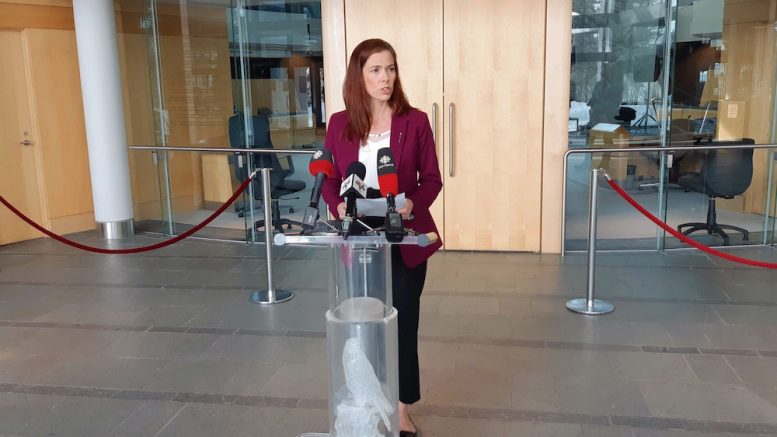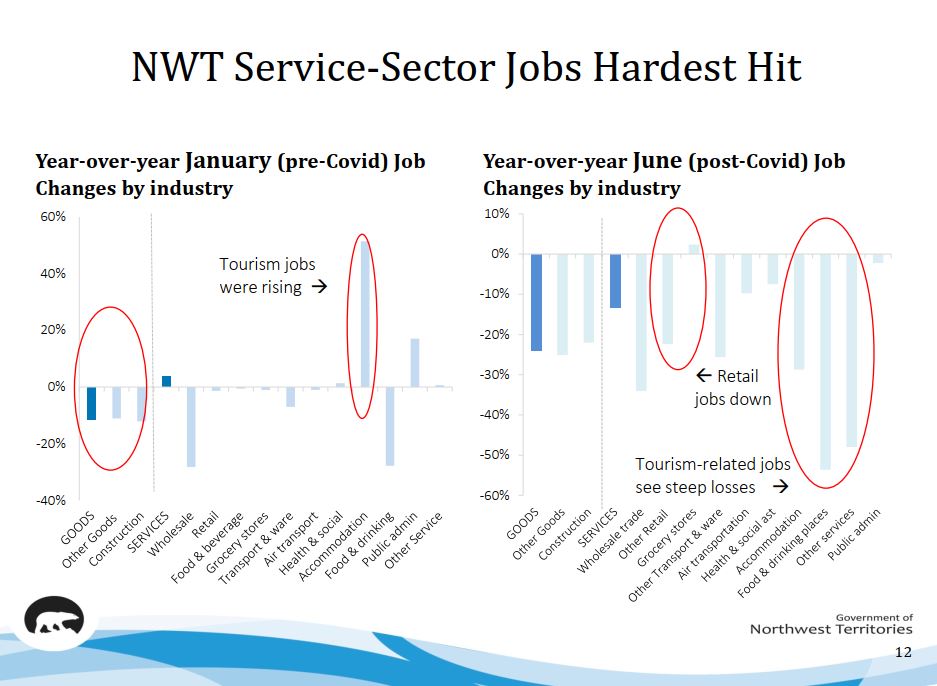The NWT lost about 4,000 jobs due to the COVID-19 pandemic, but most of those were non-residents.
Caroline Wawzonek, minister of Finance, said her department expects the labour market to rebound to 90 per cent of pre-pandemic levels by the end of the year.
However, not all job sectors will be coming back equally.
“Tourism is the obvious example here,” she said. “They will have a much longer recovery period and there’s also some concern that some of the jobs we see returning may be changing in their structure.”
The minister explained that despite the rebound, “the quality of the job may not be equivalent, whether that’s in pay or in the hours available”.
On Monday, Wawzonek told reporters the territory’s large public sector helped stabilize the labour market. She said the NWT’s job loss was about 14 per cent, while the national average was about 18 per cent.
The service sector accounted for 81 per cent of all lost jobs.
COVID costs reducing surplus
The territorial government projects to spend $175 million in emergency costs — including foregone revenues, such as bridge tolls, landing and airport fees — related to the pandemic.
So far, it has received about $92 million from the federal government to offset those costs.
Despite the federal support, Wawzonek said the costs are “significantly eating into the surplus”.
When Wawzonek first presented this year’s budget, her department projected a $203 million operating surplus. That has dropped to about $60 million.
That surplus, she explained, allows for large capital projects.
“If we get to a point where we don’t have an operating surplus then we are simply not going to be able to deliver on the capital projects that are planned for the coming years,” said Wawzonek. “So a solution has to be found.”
Wawzonek said her department feedback sessions this summer to get a sense of what that solution may be. She said residents did not want an increase in taxes or reduced program spending.
In a fiscal update last week in the house, she said “expenditure management” would be a “pillar” to long-term stability.
Basically, departments are going to have to re-evaluate where the best band for the buck will be given the new pandemic reality.
Wawzonek gave the example from her other department (Industry, Tourism and Investment) of moving money from large international marketing campaigns to supporting current industry.
“It’s a question of looking inside to figure out what can be used internally that better fits the context that we’re in with the pandemic and acknowledging that … other programs and services might not fit the current context,” she said.
Drop in resource revenues
The fiscal update shows a drop in resource revenues from $33 million to $3 million.
The territorial government receives a portion of resource royalties — mainly diamonds — but the amount fluctuates based on market value. The diamond market dropped significantly due to the pandemic.
Wawzonek said her department was already modelling outcomes if one of the mines stayed closed to the end of the year. Now that seems like more and more of a reality following the recent cancelled sale of Ekati.
“It’s going to be a particular shock in that area,” said Wawzonek.
Other own-source revenue dropped this year as well, from $368 million to $347 million. The minister said federal transfers would respond to that drop, but that response is still at least two years away.










